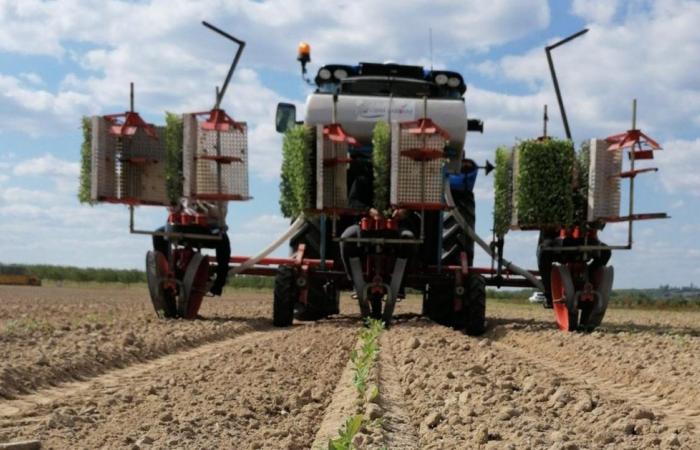
The economic crisis has dealt a huge blow to the organic sector. And the Southwest tomato was no exception. “Before Covid, we were 30% organic and we asked ourselves the question of moving to 100% organic,” remembers Laurent de Vaujany, director of the company Tomates d’Aquitaine in Bergerac, which belongs to the Terres cooperative group South.
Today, its primary processing plant processes barely 7% of organically grown field tomatoes. “In 2023, two farmers switched back to conventional because of the crisis,” he explains. Especially since the organic charter requires – and this is logical – to clean the entire factory to process organic tomatoes after those produced conventionally. A real headache. “In 2025, a dedicated line will make it possible to do both at the same time. »
“Organic is no longer enough”
The industrialist wants to remain positive: “Today, consumption is picking up again, so we are relatively reassured. To secure this organic sector, we try to sign multi-year contracts upstream with producers and downstream with our customers. »
The sector can still count on brands that focus on organic, local and ethical products, like Omie, a young agri-food company that places emphasis on the quality and traceability of its products. “We are emerging from the crisis, the figures are turning green again,” breathes its general director, Joséphine Bournonville.
For her, abuses observed even in organic farming have undermined consumer confidence in this label. “Today, organic is no longer enough. We must also reassure them about the origin of the products and the production methods. People demand transparency about the products they consume. »
The business leader sees this as a real food sovereignty challenge for the country. “We import 50% to 60% of our fruits and vegetables. Even our processing tools have gone abroad. There is a real challenge in securing the sectors, particularly in an ultra-consumed fruit like the tomato. »





